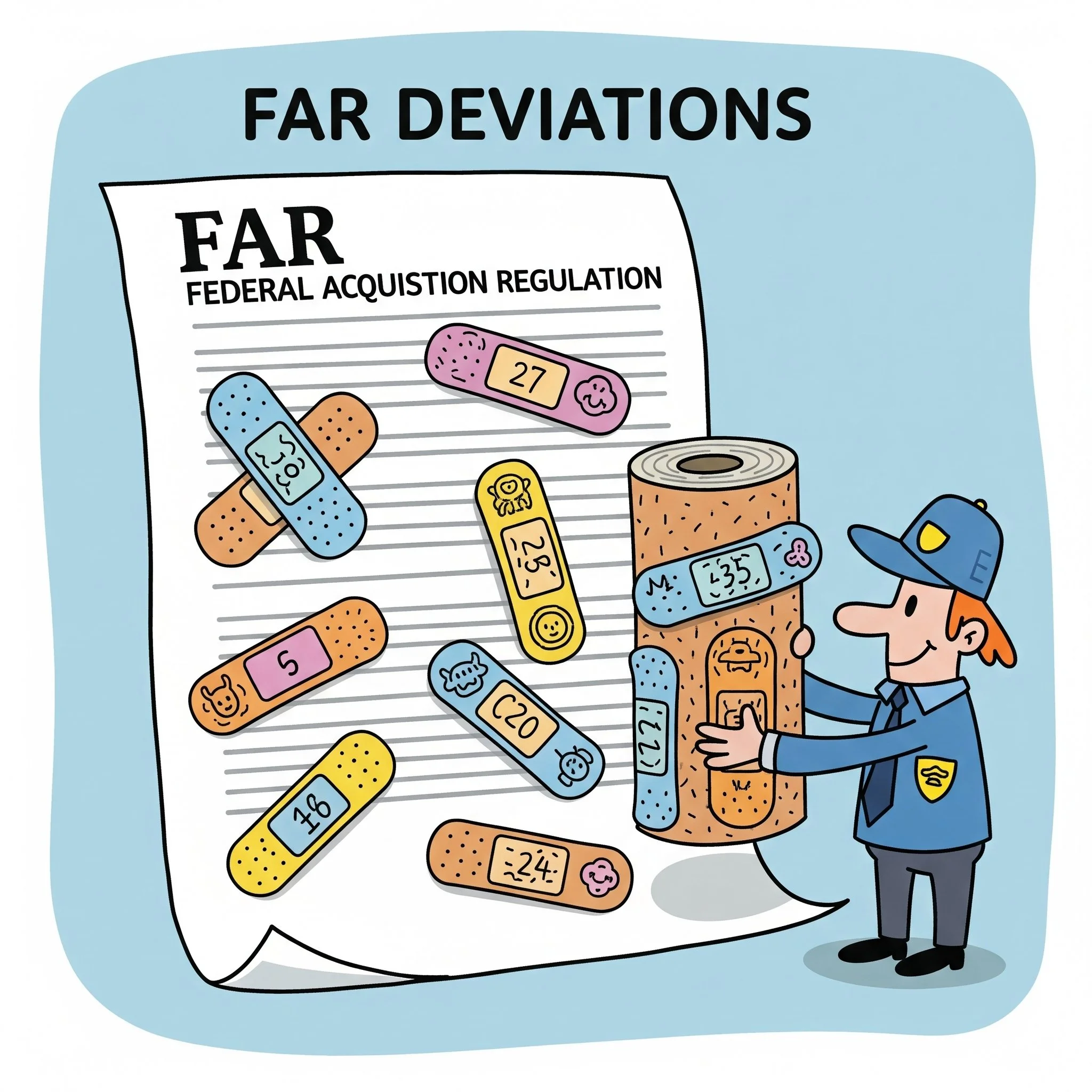Overhauls Can’t Just Involve Changing the Rules
The more I read about the Revolutionary Far Overhaul (RFO) the more concerned I get on expectations vs reality. If I had to pick one point to highlight this point it’s this:
Contracting Officers (and the specialists supporting them) often learn what they're told, rather than what the rules actually state.
I've seen comments emphasizing that the success of the Revolutionary FAR Overhaul hinges on the training provided to Contracting Officers and Specialists afterward to explain the new, streamlined rules. I agree wholeheartedly that this is critical, but I’d take it a step further. Agencies have tremendous discretion over their local policies and Standard Operating Procedures (SOPs), which are rules layered on top of federal regulations without external review or oversight. These become the "Yes, that's the rule, but here's how we do it" practices.
Here's a common example I’ve encountered repeatedly when hiring staff from other agencies:
I hire a new Contract Specialist who previously worked at a non-classified but heavily bureaucratic agency. They're assigned a direct, sole-source procurement under the Simplified Acquisition Threshold ($250K) (FAR Part 13). When asked for a status update, they respond that they've posted the J&A and are waiting out a mandatory posting period before awarding.
However, here's the issue for those less familiar with the FAR: under FAR Part 13, there’s no requirement to post a sole-source J&A prior to award. Yet repeatedly, specialists tell me their previous agency required pre-award postings for every action regardless of dollar threshold/part of the FAR the action was being awarded from. I say all this not to get into a competition discussion, but to highlight the frequent disconnect between agency-specific procedures and the actual regulatory requirements. By strictly following the FAR, that contract could have been awarded 30 days sooner.
Situations like this illustrate how inefficient or outdated internal agency practices—not necessarily the rules themselves—often create unnecessary delays and hurdles.
Finding efficiencies and streamlining regulations is undeniably beneficial, and I know that most federal contracting professionals would strongly support that idea. Yet, for the FAR overhaul to truly empower contracting officers on the ground, many agencies (though some are already ahead of the curve) must shift away from entrenched "this is how we've always done it" cultural norms. Otherwise it risks going the way of reform efforts of the past.






